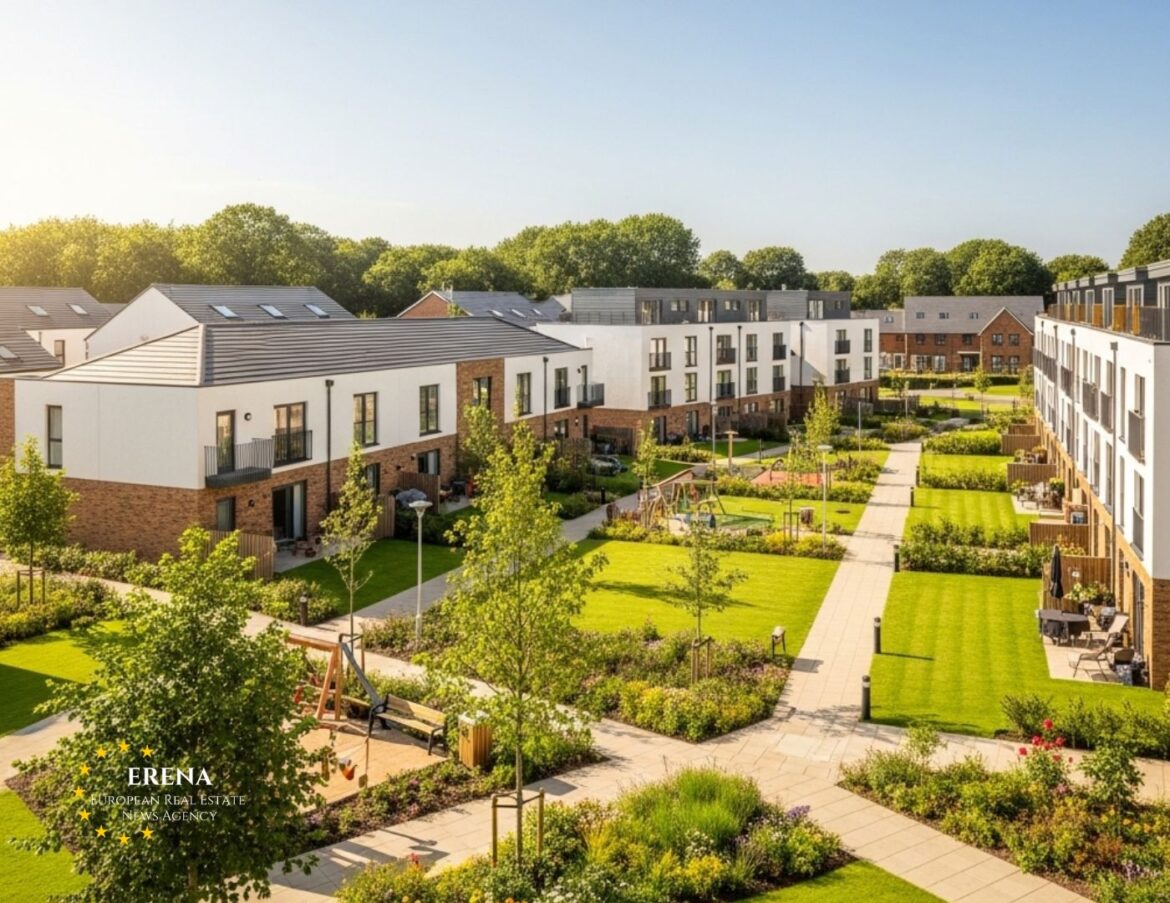British property giant Landsec has unveiled a bold €2.3 billion housing strategy following the announcement of a €460 million profit for the past financial year. This marks a strategic shift for the company, traditionally focused on commercial real estate, as it aims to address the UK’s housing shortage while diversifying its investment portfolio.
A Turnaround Year
Landsec’s €460 million profit reflects a strong recovery from the pandemic-era challenges that previously weighed down the company’s performance. The return to profitability was driven by robust demand for high-quality office space in central London, improved rent collection rates, and a gradual rebound in retail performance.
CEO Mark Allan emphasized that this renewed financial stability gives Landsec the confidence to expand into sectors with long-term social and economic relevance. “We believe this is the right time to invest in future-proof urban development,” Allan stated. “The housing market presents both a commercial opportunity and a chance to create inclusive communities.”
Core of the €2.3 Billion Strategy
Landsec’s new strategy focuses on building 7,000 homes across major UK cities over the next 7–10 years. Of the €2.3 billion earmarked for the initiative, a substantial portion will support Build-to-Rent (BTR) projects—a model where homes are developed specifically for long-term rental.
The strategic pillars include:
- Build-to-Rent developments in London, Manchester, Leeds, and Birmingham
- Mixed-use urban regeneration combining housing with retail, office, and public spaces
- Sustainability-first design, with all projects aligned to BREEAM and net-zero carbon goals
At least 30% of the planned housing will be offered at affordable rates, aimed at essential workers and first-time renters.
Landmark Developments
The flagship project will be based in South London, near Vauxhall, where a former office site will be transformed into a vibrant urban neighborhood. This €520 million development will feature:
- 1,200 residential units
- Integrated green spaces and pedestrian zones
- A primary school and co-working hubs
- Retail space for local businesses
Additional projects are underway or in planning in:
- Leeds: 800 apartments with student and young professional units
- Bristol: 600-unit rental-led development
- Birmingham: Urban regeneration with vertical gardens and smart infrastructure
Landsec is also seeking public-private partnerships with local councils and housing associations to ensure equitable access and smooth planning processes.
Market Reaction and Investor Confidence
The market responded positively to Landsec’s dual announcement of strong profits and the strategic housing push. Share prices rose 3.2% the day after the earnings release, signaling investor confidence in the company’s adaptive approach.
Analysts at Morgan Stanley and Barclays have praised the diversification move. “Landsec’s entry into residential is both timely and strategic,” said a Barclays report. “The BTR model, in particular, offers resilient, inflation-linked income in a sector with systemic undersupply.”
Addressing the Housing Crisis
Landsec’s entry into the residential market aligns with broader efforts to address the UK’s persistent housing shortage. According to government data, the country faces a shortfall of over 1 million homes. While policy makers have called for 300,000 new homes annually, completions in recent years have fallen well short.
London remains particularly affected, where demand for affordable rental units far exceeds supply. Landsec’s scale and access to capital place it in a unique position to contribute to alleviating this pressure—while still achieving commercial returns.
A Sustainability-Focused Vision
All housing developments under Landsec’s new plan will adhere to strict environmental standards:
- Net-zero operational carbon through energy-efficient systems
- Solar panels and water recycling to reduce environmental impact
- Accessible design for people with disabilities and aging populations
Community-oriented infrastructure will also be a priority. Green spaces, safe cycling paths, and high-speed internet infrastructure will be standard across all new residential sites.
Strategic Shift and Competitive Edge
Landsec’s housing strategy reflects a broader trend among UK REITs pivoting to residential. Competitors like British Land and Legal & General have also launched BTR-focused projects, but Landsec’s €2.3 billion commitment is among the largest to date.
The strategy enhances Landsec’s income diversity while positioning the firm as a leader in ESG-aligned urban development. With increasing investor scrutiny on sustainability and social impact, Landsec is signaling that profitability and purpose can go hand in hand.
Conclusion
Landsec’s €2.3 billion housing strategy, launched on the heels of a €460 million profit, represents more than a shift in asset allocation—it’s a reinvention of the company’s role in shaping future cities. By moving into the housing sector with scale, sustainability, and affordability at its core, Landsec is aligning with both market demands and societal needs.
If executed effectively, the strategy could redefine Landsec’s place in the UK property sector—balancing financial strength with forward-thinking urban impact.

